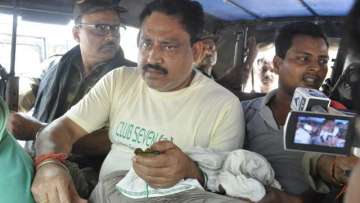Once a ‘cycle thief’, here’s how father of road-rage accused Rocky turned his fortunes
Patna: A turn in fortunes can mark a significant change in your days. And it works both ways. It can either take you to an all time high or can bring you crashing to the
Patna: A turn in fortunes can mark a significant change in your days. And it works both ways. It can either take you to an all time high or can bring you crashing to the ground.
But, Bindeshwari Prasad Yadav alias Bindi, father of the road rage murder accused Rocky Yadav, has only been on the rise.
Once a petty bicycle thief in Gaya, Bindi has come a long way to become a super rich man with powerful political connections.
Though he was a small fry in the criminal ecosystem of Bihar back in the 1980s, locals were still fearful of him and his partner-in-crime Bachchu.
Called as Bindia-Bachua, the duo did most of the talking with their guns and spared no one that crossed their path.
That was the time when Lalu Prasad was at the helm of the Bihar government. Crime flourished in Bihar, powered by dreaded criminals like Surendra Yadav, Rajendra Yadav and Maheshwar Yadav. Bindi and Bachchu joined the bandwagon.
Their brutal ways, however, forced the government to take action; officers known to be 'strict' were deputed as the district magistrate and SP in Gaya. They invoked the stringent Control of Crimes Act to tame Bindi and Bachchu.
That was the catalyst for Bindi to realise that he would require political backing to survive. In the late 1990s, he joined Lalu Prasad's outfit, the Rashtriya Janata Dal (RJD). It was here that he began his journey of transformation from a criminal to a politician.
Also read - Gaya road rage: Suspended JD(U) MLC Manorama Devi seeks anticipatory bail
With the RJD's support, Bindi was elected unopposed as the chairman of Gaya District Board in 2001. He held that position till 2006.
In the meantime, he tried his luck at the hustings in 2005 as an independent candidate from Gaya (rural), as he was denied an RJD ticket for the assembly election. But he failed to garner enough votes to make it to the assembly.
He unsuccessfully contested the assembly election again in 2010 from Gurua, this time on the RJD ticket. In his affidavit, he had declared 18 criminal cases against him. Apparently, Lalu Prasad had ignored Bindi's track record as a criminal to promote his political career. It didn't work though.
It was when Nitish Kumar came to power in 2010 that Bindi switched his loyalties to the Janata Dal-United. But the image-conscious chief minister was averse to backing a criminal.
In 2011, when Bindi was arrested, he was found to be in possession of an AK-47 rifle, a self-loading rifle and over 4,000 cartridges.
The bicycle thief changed his ways after this incident. He used his proximity to the JD-U and the RJD to secure several government contracts that helped him boost his fortunes.
It is also believed that Bindi has close contacts with the Maoists. Most of the government contracts of developmental projects in the rebel-affected areas go to Bindi. And there lies the secret behind Bindi's journey from being a petty criminal to a businessman rolling in money.
It seems successive Bihar governments overlooked his antecedents. His arms licences were not reviewed even though the number of cases against him went up to 19. According to the latest figures, there are at least 11 cases against Bindi, including that of kidnapping and murder.
Today, Bindi Yadav owns malls, hotels, 15 petrol pumps in Gaya, Bodh Gaya, Delhi and adjoining areas. He has business interests in sectors as diverse as road, construction and liquor.
